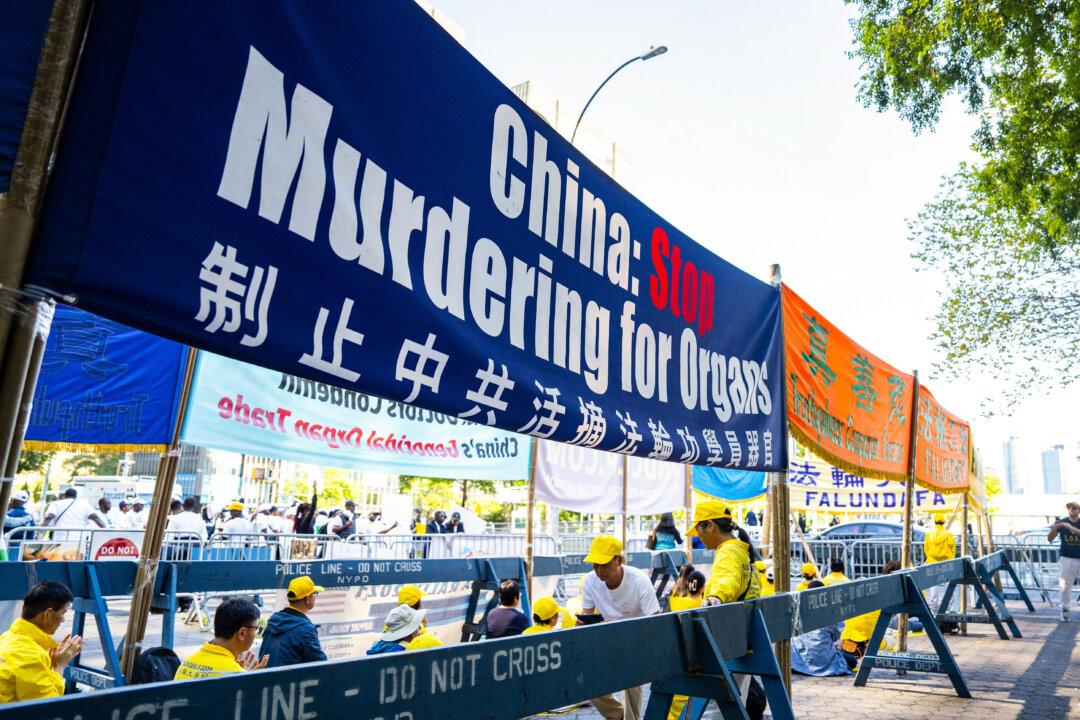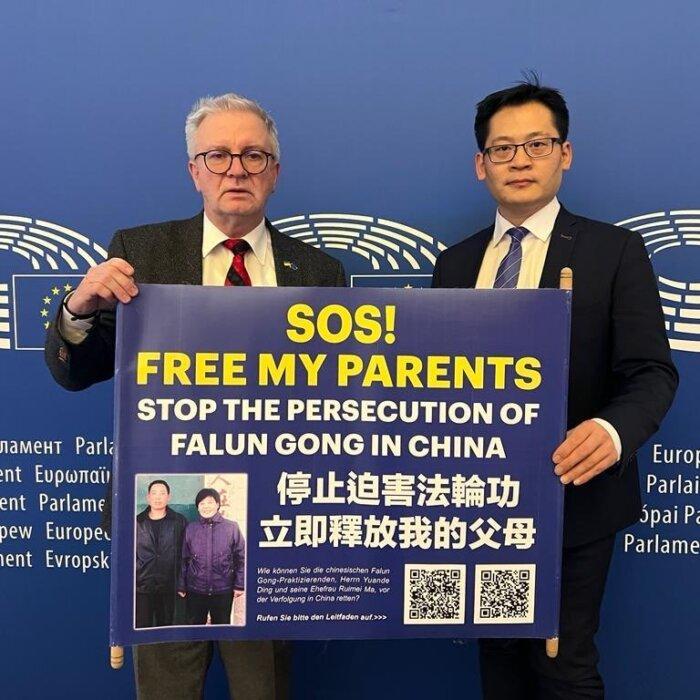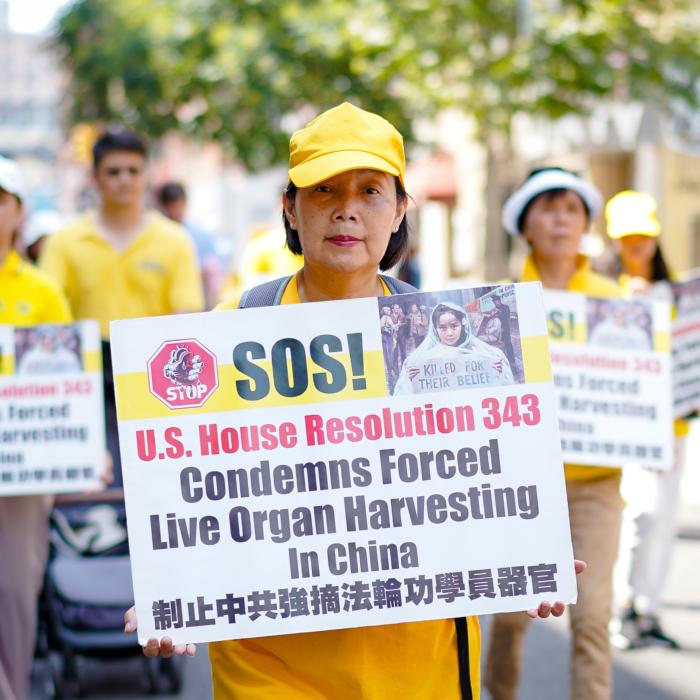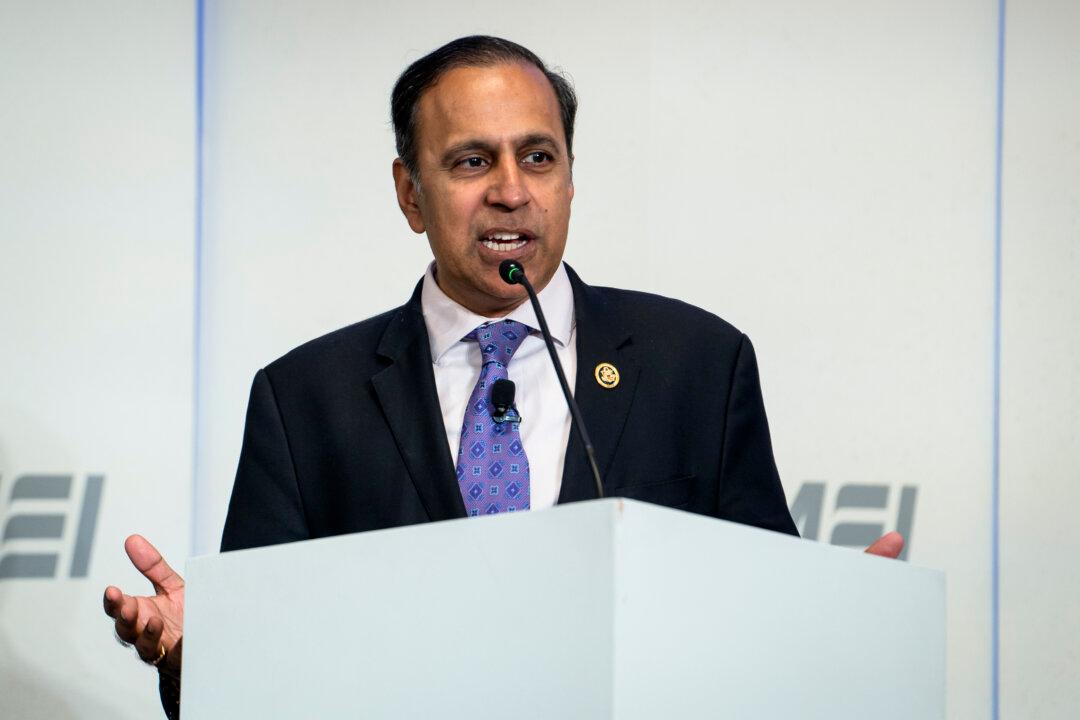A coalition of 110 lawmakers, doctors, academics, and civil groups are calling on the United Nations to establish an international criminal tribunal to investigate crimes of forced organ harvesting in China.
As an untold number of prisoners of conscience—mostly detained practitioners of the faith group Falun Gong, according to an investigation by the China Tribunal—die under the Chinese Communist Party’s (CCP’s) state-sanctioned crimes of forced organ harvesting, silence can only embolden perpetrators to “expand their repressive actions beyond their own borders,” DAFOH warned, noting that many Western institutions—such as training hospitals, pharmaceutical companies, and medical organizations—have “implicitly agreed to sacrifice legal and ethical standards to cooperate with China in these mass murders.”
The CCP’s persecution of Falun Gong—a spiritual practice that encourages its adherents to live by the principles of truthfulness, compassion, and tolerance—made tens of millions of Chinese nationals targets for state-sanctioned forced organ harvesting. The vast supply of organs, forcibly taken from China’s population of incarcerated dissidents, has turned the country into a top destination for international transplant tourism. Chinese hospitals often offer short waiting times for matching organs to patients—much faster than what can be offered in developed countries with established organ donation systems that value ethical safeguards.
“While forced organ harvesting may appear to be a remote occurrence to those of us in the free world, it would become relevant if we, or our relatives, needed an organ transplant,” DAFOH said.
DAFOH urged that all U.N. member states “critically and courageously question China’s human rights records” during the Jan. 23 U.N. meeting.
Edward McMillan-Scott, who served four terms as the vice president of the European Parliament from 2004 to 2014, remembered his shock in learning that such abuses would take place in real life, during his mission trip to China in 2006.
In May 2006, he met with formerly imprisoned Falun Gong practitioner Cao Dong, who told him about his best friend who had disappeared from his prison cell. Mr. Cao recounted later seeing his friend’s body in the prison morgue, with holes where his vital organs had been removed, Mr. McMillan-Scott said at a Jan. 22 U.N. side event hosted by CAP Freedom of Conscience, a European rights advocacy group with U.N. consultative status.
Mr. Cao was jailed for that secret Beijing meeting. To date, Mr. McMillan-Scott hasn’t been able to find out what had happened to Mr. Cao, he told The Epoch Times. He later met with more Falun Gong adherents who escaped China after their imprisonment.
“There were just literally hundreds of people who all said the same thing,” he said. “It is not possible to disbelieve such a consistent set of evidence over such a long period.”
‘Time to Show Backbone’
Investigative reports and witnesses of forced organ harvesting in China have surfaced over the years, all pointing to the seriousness of the CCP’s abuses.As the U.N. review of China’s human rights is just one day away, Katrina Lantos Swett, president of the Lantos Foundation for Human Rights and Justice and daughter of a Holocaust survivor, urged the U.N. Human Rights Council to confront the CCP on forced organ harvesting, which she described as “one of the gravest and most despicable human rights violations in the world today.”
“This is a time to show backbone,” she said in a prerecorded speech to the conference, noting that it was her hope, and that of millions around the world, that during the U.N. review, the Chinese regime would be held accountable for “this horrific practice.”
The benefit of having a “very high-powered, objective, dispassionate review of the evidence” through an international forum is that “you cannot underestimate [its] importance,” he told The Epoch Times.
“I think it shows that China feels a need to respond to the criticism that has been laid,” the British parliamentarian said. “My role and the role of fellow parliamentarians is to keep this matter in the public eye. It is to try and ensure that the evidence is assembled in as effective a way as possible.”
“The more we get international concern,” and the more that individual countries pass targeted laws, the better it is, he said.
“You think about the poor people who’ve been affected. ... We really have got to stop this appalling practice.”
Mr. McMillan-Scott stressed that “it’s impossible to do too much” on the issue. He had backed the European leaders’ boycott of the 2008 Beijing Olympics over the regime’s human rights suppression.
“I played a role in starting the process, and I’m pleased that it is continuing. It’s very necessary,” he said.
“Every millisecond is too long,” he said at the event, “because this is an incredible injustice.”








